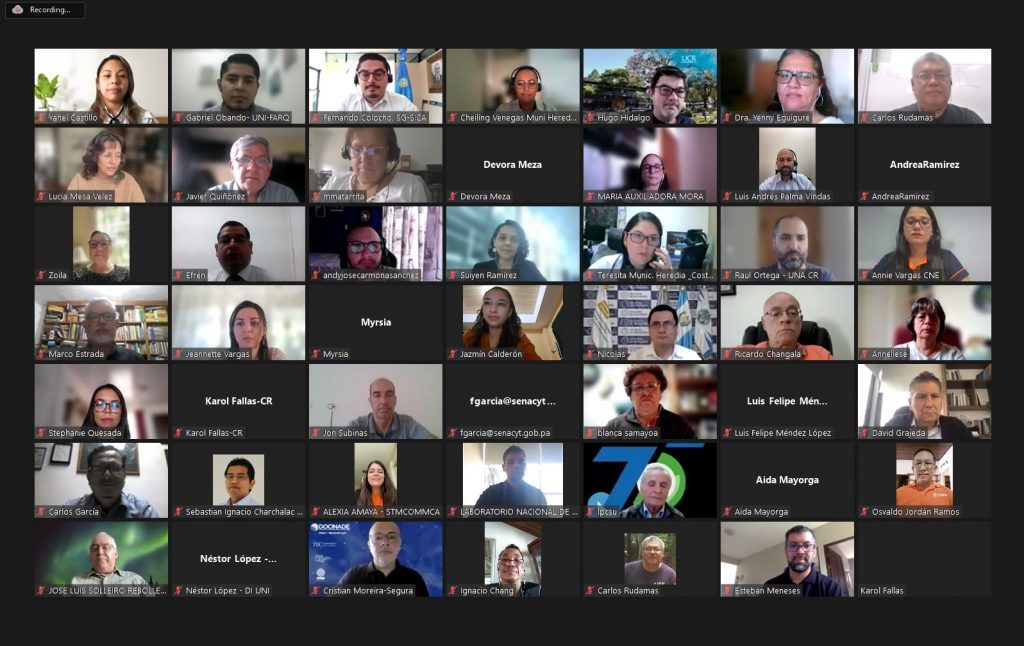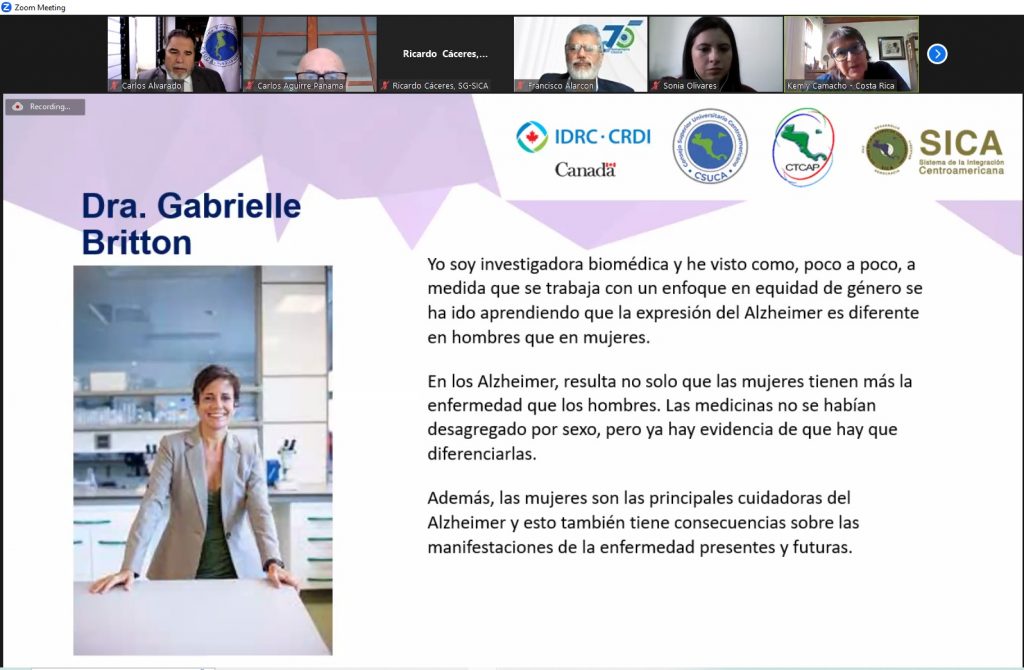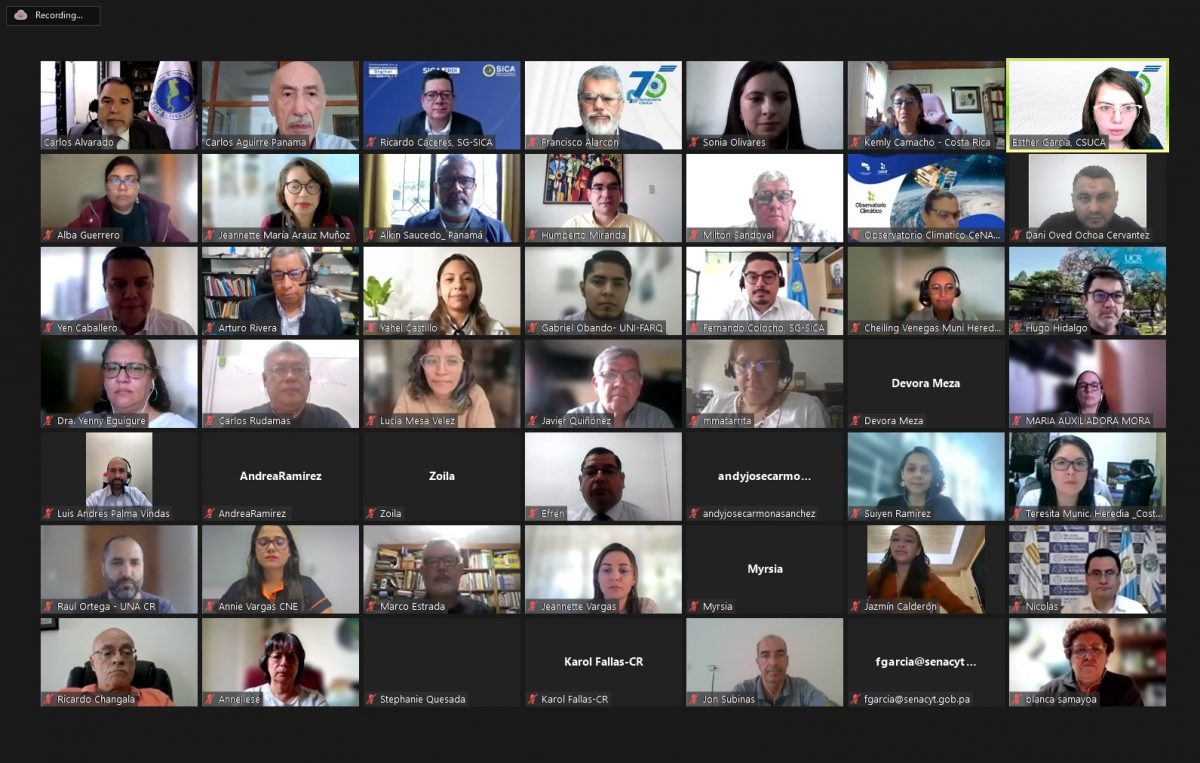Centroamérica, 6 de noviembre de 2023
Con el propósito de apoyar la investigación colaborativa en América Latina y El Caribe (ALC), el día de hoy se realizó reunión de seguimiento a los proyectos “Fortaleciendo sistemas inclusivos de ciencia e innovación en América Latina a través de una red de investigación colaborativa”, liderado por el Consejo Superior Universitario Centroamericano (CSUCA) y “Política Centroamericana para la CTI abierta y los mecanismos para medir su impacto en la sociedad” liderado por la Secretaría Nacional de Ciencia, Tecnología e Innovación (SENACYT) de Panamá y la Fundación Ciudad del Saber de Panamá (CDS), ambas corrientes financiadas por el Centro Internacional de Investigaciones para el Desarrollo -IDRC- de Canadá.
Ambos proyectos se ejecutan en coordinación con los Consejos Nacionales de Ciencia de los países de la región y apoyan las actividades de fortalecimiento de capacidades que permitan a los Consejos y los órganos regionales de coordinación de la ciencia, cumplir eficazmente sus mandatos y mejorar los sistemas nacionales y regionales de ciencia, tecnología e investigación (CTI).
La actividad fue inaugurada por Carlos Alvarado Cerezo, Secretario General de CSUCA, quien señaló “Estos proyectos fortalecen a la región en temas de investigación e innovación, con un enfoque de género, siendo este un tema fundamental que debe implementarse en el desarrollo de cada uno de los proyectos”.
La reunión contó con la presentación del estado de situación de ambos proyectos, por sus coordinadores Carlos Aguirre y Yen Caballero, así como la presentación del estudio sobre innovación inclusiva con equidad de género por Kemly Camacho, consultora del proyecto liderado por CSUCA.
Es preciso destacar que por parte del proyecto CSUCA-IDRC, en febrero de 2023 se habilitó la convocatoria pública a la presentación de propuestas de proyectos, convocatoria en la que se recibieron 73 propuestas, siendo seleccionados para ejecución 16 de los mismos, los cuales tendrán una duración de ejecución de 22 meses, contando con dichos proyectistas, como principales invitados para el desarrollo de esta reunión.
Cabe destacar que los 16 proyectos a desarrollar, se encuentran diseñados bajo los siguientes ejes temáticos:
· Territoriality, risk and local development,
· Crecimiento económico, productividad, competitividad y desarrollo sostenible,
· Transformación digital, automatización, inteligencia artificial y
· Ciencia de datos, y cambio climático y gestión ambiental.
Con el propósito fortalecer el nexo innovación-inclusión en la región centroamericana, en sus dos vertientes complementarias: Innovación para la inclusión cuando el foco son los resultados del proceso; y la innovación inclusiva cuando ésta se refiere a un proceso participativo mediante el cual la innovación emerge.



